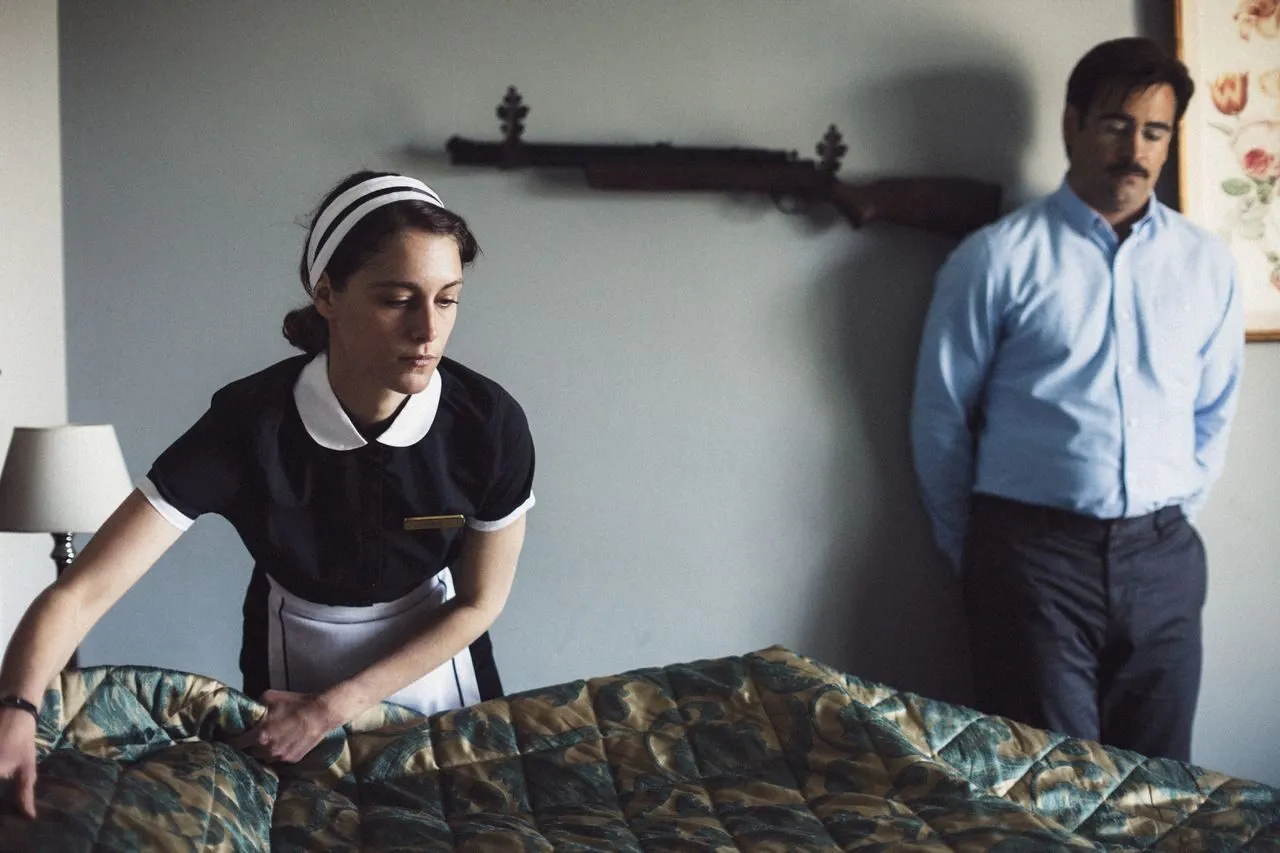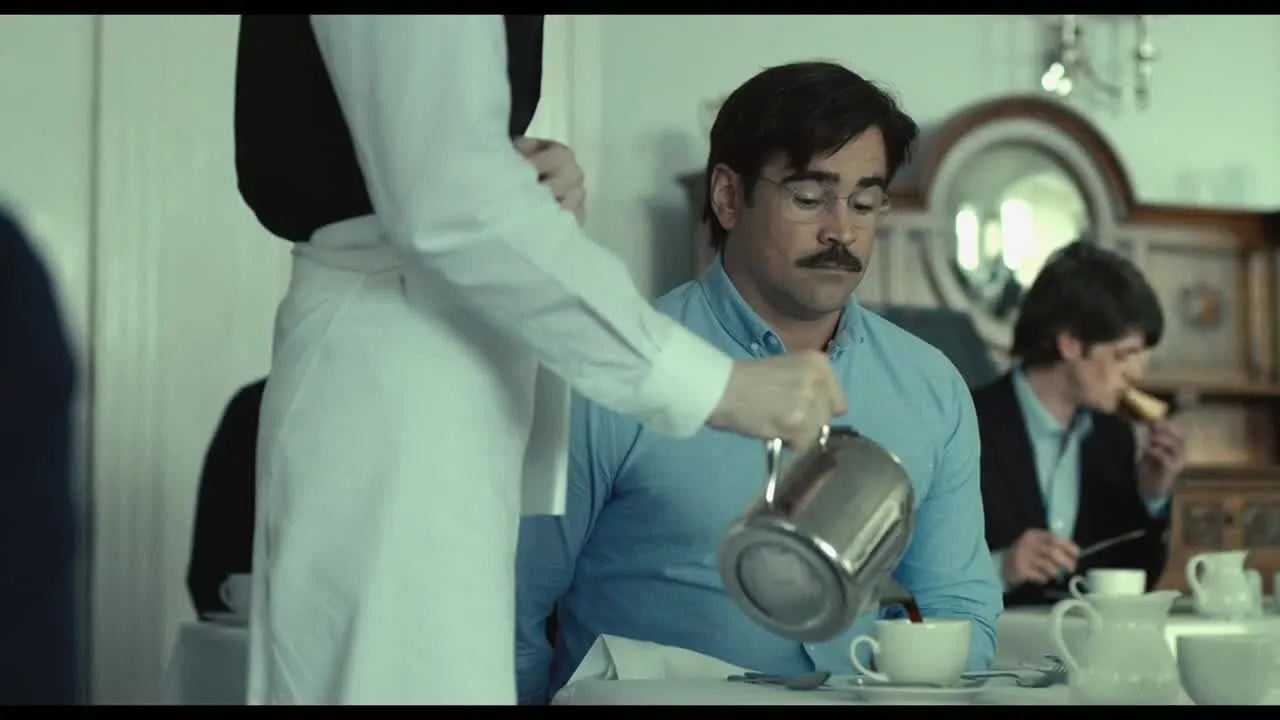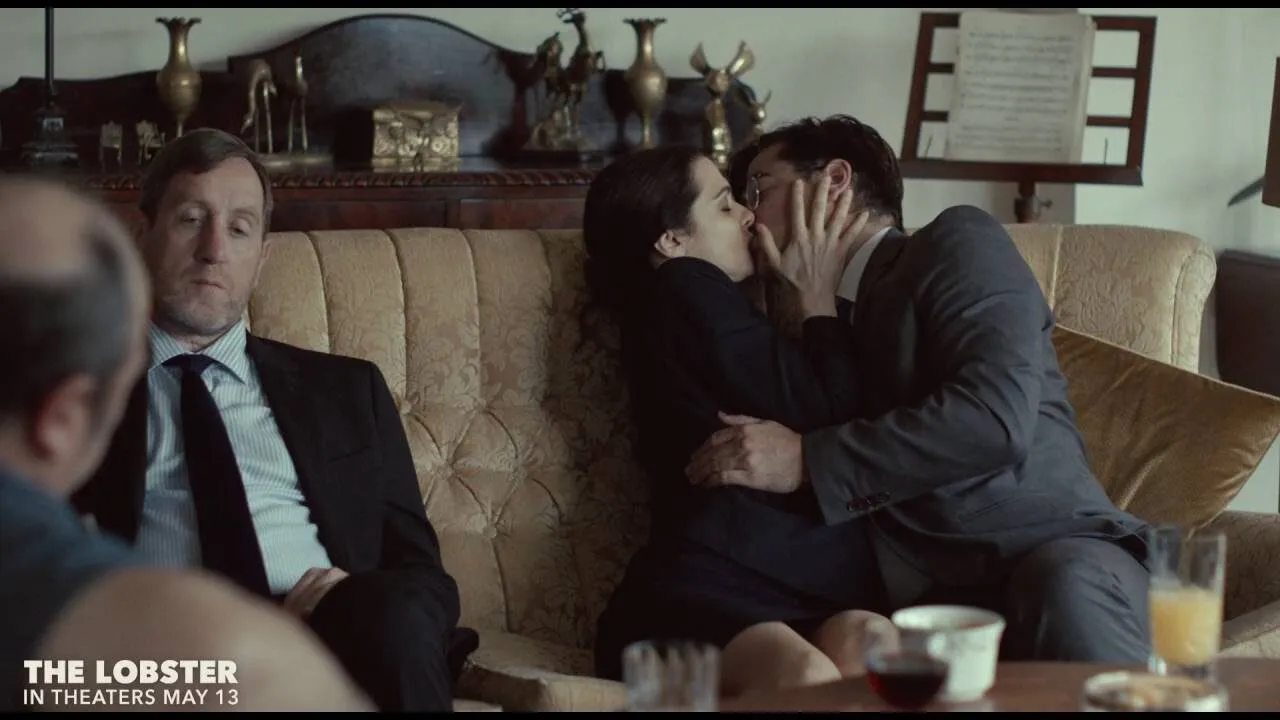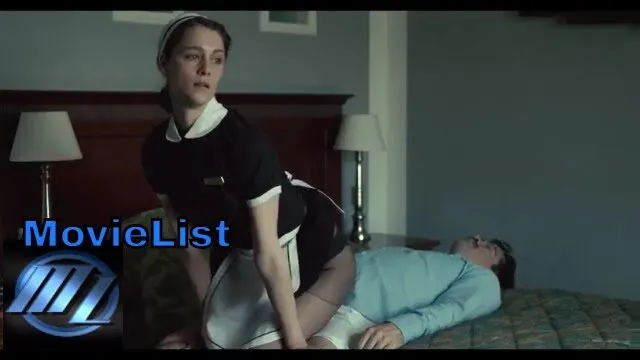𝑻𝒉𝒆 𝑳𝒐𝒃𝒔𝒕𝒆𝒓 (2015) Full Movie
May 30, 2025
The Lobster (2015): A Darkly Absurd Fable About Love, Loneliness, and the Human Condition
In a world where rules govern not only our daily lives but the very essence of our existence, The Lobster (2015) is a film that dares to challenge and distort every expectation. Yorgos Lanthimos, the master of absurdity and deadpan humor, crafts a world so bizarre, so eerily familiar, that it feels like a dream. Or perhaps, a nightmare. This dark satire dissects love, loneliness, and human connections through a lens so stark, so surreal, that it forces us to question not only the nature of relationships but the very systems we use to define them.
Set in a dystopian future where single people are hunted and forced to find romantic partners within 45 days or face transformation into an animal, The Lobster is both hauntingly hilarious and deeply unsettling. It is an exploration of humanity’s strange obsession with conformity and the lengths to which we go to avoid isolation. It’s a film that will leave you thinking long after the credits roll, questioning the bizarre rituals we’ve all come to accept in the name of connection.

Plot Summary
The story begins in a society where the concept of “singleness” is treated as a disease. The protagonist, David (played with remarkable subtlety by Colin Farrell), finds himself cast into this world after his wife leaves him. He is promptly sent to a hotel where single people are required to find a mate within 45 days, or they will be transformed into an animal of their choosing. David, who initially chooses a lobster for its long life expectancy and its ability to live in water, navigates this absurd society under the watchful eyes of the hotel’s strict managers.
As David struggles to find a match, he encounters a host of other quirky characters, all desperately trying to form relationships to avoid their horrifying fate. The hotel is a microcosm of a society obsessed with uniformity and superficial connections, where dating is a game with set rules and consequences. The pressure mounts as David forms a fragile relationship with a woman known as the Short-Sighted Woman (Rachel Weisz), and the two eventually escape to join a group of rebels living in the woods.
The film takes us on a journey through David’s emotional and physical transformation, forcing him to confront the absurdity of love and relationships. In the wilderness, the rules of the outside world are challenged, but new constraints — perhaps even more dangerous — emerge, as the group of rebels adheres to their own rigid beliefs about love and romance. The film culminates in an ending that is both bleak and strangely hopeful, leaving viewers with lingering questions about identity, belonging, and the price of love.

Artistic Analysis
Lanthimos’s vision is as bizarre as it is beautifully constructed. Every element of the film is meticulously designed, from the sterile, color-muted interiors of the hotel to the dense, shadowy forests where the rebels live. The cinematography, in the hands of Thimios Bakatakis, is unflinchingly cold, capturing the emotional distance between characters while highlighting the surreal beauty of the world they inhabit. The framing is precise, often focusing on solitary figures in vast, empty spaces, reflecting the existential isolation at the heart of the film.
The absurdity of the narrative is matched by the film’s aesthetic choices. The hotel, a clinical and emotionless environment, contrasts sharply with the untamed woods where the rebels take refuge. The film’s color palette mirrors the emotional journey of the characters — muted tones, grays, and blues dominate the hotel scenes, while the forest scenes are darker, more chaotic, filled with contrasting colors. The visual storytelling complements the themes of conformity and rebellion, emphasizing the stark boundaries between the two worlds.
Lanthimos’s unique use of dialogue — flat, dispassionate, and often absurd — heightens the dark humor and surreal tone of the film. It’s as if the characters are reading from an instruction manual on how to be human, completely disconnected from their emotions. This deadpan delivery, while initially jarring, adds to the film’s critique of the mechanized ways in which society enforces relationships.

Performances
Colin Farrell delivers a standout performance as David, a man caught between his own desires and the oppressive societal rules that define them. His portrayal is a delicate balance of vulnerability and defiance, as he struggles to reconcile his longing for connection with the absurdity of the world around him. Farrell’s ability to express emotion in such a restrained, almost robotic manner is central to the film’s atmosphere — his performance is as much about what is not said as what is.
Rachel Weisz, as the Short-Sighted Woman, plays her role with equal restraint and complexity. She is both a victim of the system and a quietly rebellious force. The chemistry between Farrell and Weisz, though understated, becomes one of the film’s most poignant elements. Their connection feels real, yet completely alien within the confines of the bizarre world Lanthimos has created.
The supporting cast, including Léa Seydoux as the seductive and calculating Leader of the rebels, and Olivia Colman as the Hotel Manager, are all exceptional. Each actor brings a unique layer to their character, making them both recognizable and surreal in the context of the film’s world.

Emotional Impact
The Lobster doesn’t aim for easy emotional catharsis. Instead, it lingers in the realm of discomfort, forcing the audience to reflect on the nature of love, loneliness, and the societal structures that shape our relationships. At its core, the film is about the struggle to find meaning in a world that often seems determined to strip it away.
There are moments of dark humor that cut through the bleakness, but there is also an undeniable sadness beneath the surface. The film challenges the audience to confront the absurdity of love and its commodification. It exposes the desperation and conformity that underpin societal norms, leaving you with the haunting realization that, perhaps, we are all a little bit like the lobsters — choosing our fate in a world where true connection is elusive.
Tone & Rhythm
The tone of The Lobster is both absurdly comic and deeply tragic. Lanthimos masterfully balances these elements, keeping the audience on edge with moments of discomfort, surprise, and unexpected humor. The film’s rhythm is deliberate, slow, and deliberate — allowing the absurdity of the world to unfold at a pace that feels both suffocating and oddly meditative.
The film’s rhythm mirrors its central themes: the painful drag of societal expectations, the hollow attempts at connection, and the emotional toll of living in a world where love has become a transactional commodity. It’s not a film you watch to pass the time. It’s one you experience — slowly, painfully, and with full awareness of the consequences of every relationship, every choice..

Final Thoughts
The Lobster (2015) is a brilliant, unsettling exploration of love and identity in an absurd world. It forces us to look at the artificial structures we build around relationships and challenges the very idea of romantic love as something to be bought, sold, and standardized. With a cold, surreal aesthetic, Lanthimos creates a universe that is both comically absurd and deeply poignant — a world where the human heart is reduced to a set of rules, and yet, somehow, still beats.
In a time when our own society increasingly commodifies relationships, The Lobster is a sobering reflection on the dehumanizing effects of conformity, and the desperate, beautiful need to connect. It’s a film that demands to be felt as much as it is seen, leaving you with lingering questions that refuse to be answered

